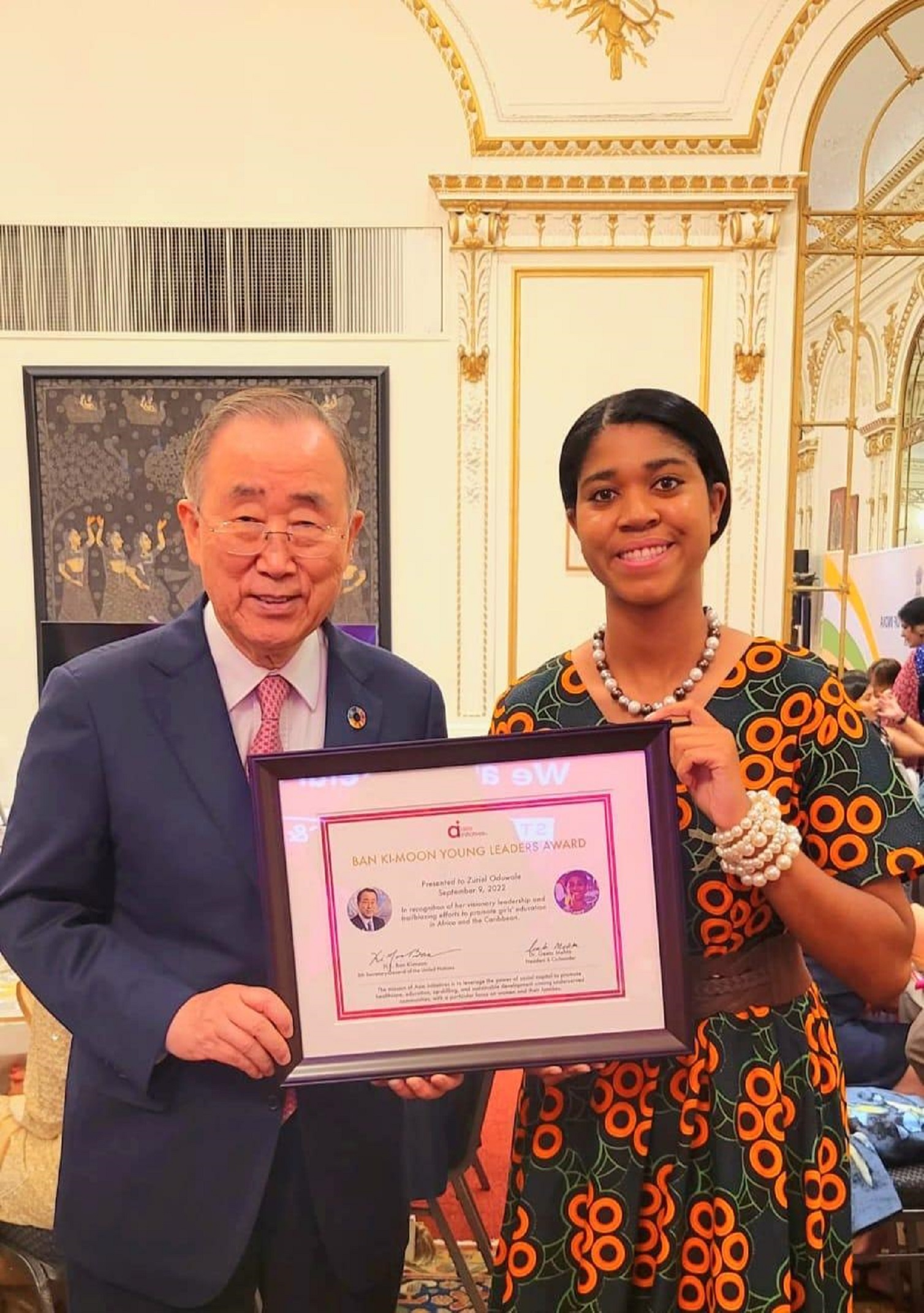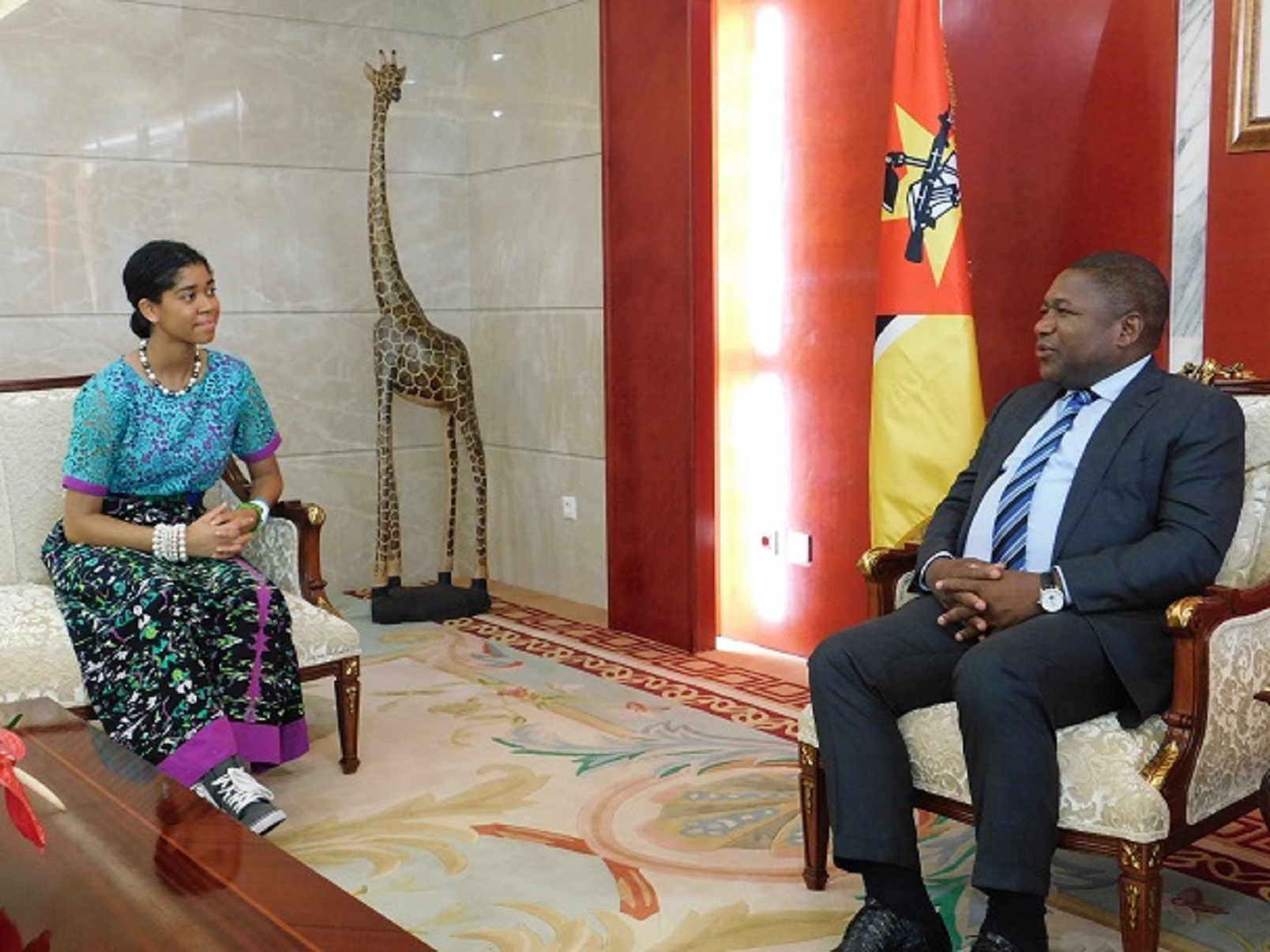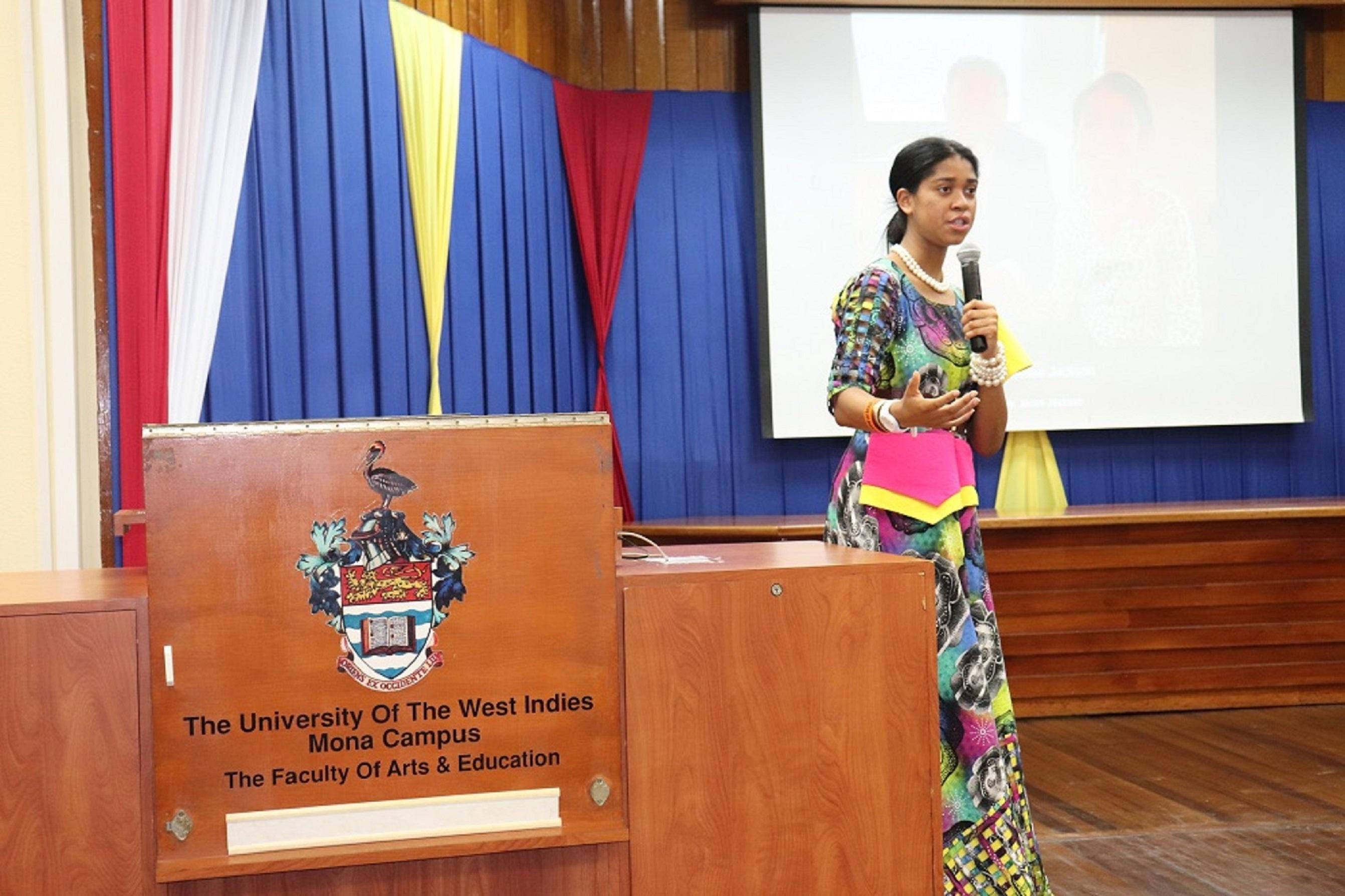22-year-old UCLA alumnus Zuriel Oduwole nominated for Nobel Peace Prize
Zuriel Oduwole speaks at the University of West Indies. The 2022 cognitive science alumnus was nominated for the Nobel Peace Prize for her advocacy in gender and education equality. (Courtesy of Zuriel Oduwole)
By Saya Mueller
May 6, 2025 10:47 p.m.
Zuriel Oduwole never imagined her work would lead to a Nobel Peace Prize nomination.
The 22-year-old filmmaker and 2022 cognitive science alumnus is also a social development advocate and presidential advisor who has traveled the world to converse with 36 world leaders about social development issues. Oduwole said she uses her position to champion children’s rights in education, teach filmmaking workshops and advocate against child marriage.
“Honestly, I did not think people were paying that much attention – or close enough attention – to what I was doing to even warrant a Nobel Peace Prize nomination,” Oduwole said. “I am incredibly grateful and honored just for the nomination.”
Her father – who Oduwole said is one of her biggest supporters – told her of her nomination. Although this is her first Nobel Prize nomination, Oduwole said her work has been recognized in the past.

Most recently, Ban Ki-moon, the eighth secretary general of the United Nations, presented Oduwole with the Ban Ki-moon Leadership Award in 2022, according to her website. Oduwole was awarded for her work in multiple fields, including girls’ education and gender development.
At nine years old, Oduwole found her passion for advocacy and filmmaking as she traveled to Ghana to shoot scenes for a documentary on the Ghanaian Revolution, she said. During her travels, she noticed children her age were not in school but rather out on the street, chasing cars to sell various items, she said.
“I was like, ‘What can I do? What can be done to change this?’” Oduwole said.
From there, she said she started her formal education advocacy project, Dream Up, Speak Up, Stand Up. She speaks in schools in various countries, including Jamaica, Botswana, Ethiopia and South Africa to impart the importance of getting a good education, having dreams and working hard to accomplish one’s goals, she added.
Over the course of her talks, Oduwole has reached nearly 60,000 young adults in 23 countries, with Seychelles being the most recent, she said.
Yet something was missing, Oduwole said. To further her cause, Oduwole said she began discussing policy initiatives and the importance of children’s education with heads of state from around the world.
“We push for youth empowerment initiatives to make sure that we’re raising up a generation of changemakers,” Oduwole said.
One of her most encouraging experiences was seeing her efforts in Mozambique turn into tangible results, Oduwole said.
Oduwole added that she used her accomplishments as examples to showcase the potential of what girls could do with an education in her discussion with Mozambique President Filipe Nyusi. Girls in Mozambique are often pulled out of school to commit to a child marriage, stopping their education and preventing them from reaching their goals, she added.

A little over a year after their discussion, Mozambique formally outlawed child marriage in a unanimous parliamentary vote.
At 13, Oduwole used her personal experiences in videography to teach filmmaking classes for young women, she said. She has since conducted her classes in eight countries, she added.
“We started this workshop to teach youth, to teach out-of-school kids, to teach unemployed young women a tangible skill they can use to not only tell their stories, to amplify their voices but also to hopefully make a living from and support themselves,” Oduwole said.
Oduwole’s interest in educational advocacy came from looking up to her parents as educators, she said. She was homeschooled for part of her education, she added.
Oduwole’s mother largely helped teach Oduwole and her three siblings throughout their education, and her father supplemented their learning with lessons in economics and science, she said.
“Education can be school, but it’s also things you learn outside of school,” Oduwole said. “My parents did a good job of not just schooling us but educating us in life lessons and obscure topics like finance, stocks, global affairs – things like that.”
Oduwole continued her advocacy efforts and filmmaking classes while also managing her UCLA course curriculum during the COVID-19 pandemic, ultimately graduating at age 19.
“Throughout the quarter, she was pursuing work in advocating for girls’ education around the globe while at the same time completing her coursework with high quality,” said Amber Ankowski, a continuing lecturer of psychology, in an emailed statement.
Although Oduwole’s experiences at UCLA largely occurred online due to the pandemic, the professors, friends and classmates she met had an impact on her, she said.
“It’s a culmination of those different factors that allow us to … start to understand different perspectives, which, in turn, can help us look at things in a different light,” Oduwole said.
In her spare time, Oduwole likes to socialize and spend time with her friends and family, she said. Noel Paul, Oduwole’s longtime friend from their time as camp counselors, said Oduwole has an ability to allocate her time and attention away from her advocacy work when with her close ones.
“When Zuriel wants to do something, she gives it her entire heart and puts all of her effort in it,” Paul said. “She genuinely wants to see good change in the world.”
Oduwole is currently finishing her doctorate at the University of Southern California and said she hopes to continue to inspire change through her efforts in the future.
“Each of us has been gifted with a voice,” Oduwole said. “What we choose to do with that voice is our gift to the world.”
